Keresés: %s
Keresés: %s
Summary of this year's last Energy Council
After a three-round debate, the Council approved a political agreement on the market correction mechanism, which will be adopted in a written procedure starting on 22 December.
Hungary was not in a position to vote for the adoption of the mechanism, with the Netherlands and Austria abstaining. Germany, Denmark and Luxembourg voted in favour following a political decision. At Germany's request, the presidency opened a proposal for a regulation under article 122 TFEU on a framework for the acceleration of the deployment of renewable energy, despite the fact that the text had been frozen at the Council on 24 November. Germany proposed further amendments to facilitate the authorisation of grid infrastructure for renewable energy projects in exchange for the adoption of the market correction mechanism. Political agreement was reached on the proposed changes and the Council decided to submit it to the written procedure. Hungary indicated that it would abstain from voting.
The Council then adopted a general approach on a draft regulation on the reduction of methane emissions and took note of a progress report on the directive of the European Parliament and of the Council on the internal market in renewable gases, natural gas and hydrogen and a regulation of the European Parliament and of the Council on the internal market in renewable gases, natural gas and hydrogen.
The Council adopted a general approach on the proposal for a REPowerEU directive that brings targeted amendments to EU legislation on renewable energy. Member states will design dedicated ‘go-to areas' for renewables with shortened and simplified permitting processes in areas with lower environmental risks. The Council confirmed the target of the share of energy from renewable sources in the Union’s gross final consumption of energy, of at least 40% in 2030. Hungary supported the agreement.
Under any other business, the presidency provided information on current legislative proposals, including the revision of the energy efficiency directive and the renewable energy directive, that are currently being negotiated in trilogues between the Council and the European Parliament. The presidency debriefed ministers on the SET Plan Conference and the European Nuclear Energy Forum.
The Commission informed ministers about the on going work ont he revision of the electricity market design. The Commission also gave information on recent developments in the field of external energy relations. Sweden presented the work programme of its incoming presidency.
Right balance is needed between promoting innovation and securing affordability of medicines
The upcoming review of the EU pharmaceutical legislation is long awaited by Member States as well as by all the interested stakeholders. In the context of the post-Covid times, healthcare systems are facing new challenges that call for effective response.
One of the key issues is how the EU can boost innovation where it is really needed and what will guarantee that new measures do not adversely affect the sustainability of health-systems and pharmaceutical manufacturing. The Commission is expected to publish its proposal in early 2023, therefore the Hungarian Permanent Representation considered it is timely to have an open debate on possible new instruments that would meet the goal of the pharmaceutical strategy: ensuring access, affordability and availability.
The conference “Sustainable ways to support pharmaceutical innovation” took place on 12 January 2023 at the Permanent Representation of Hungary in cooperation with the Slovak Presidency of the Visegrad 4 Group, the Permanent Representation of the Netherlands, and Medicines for Europe.
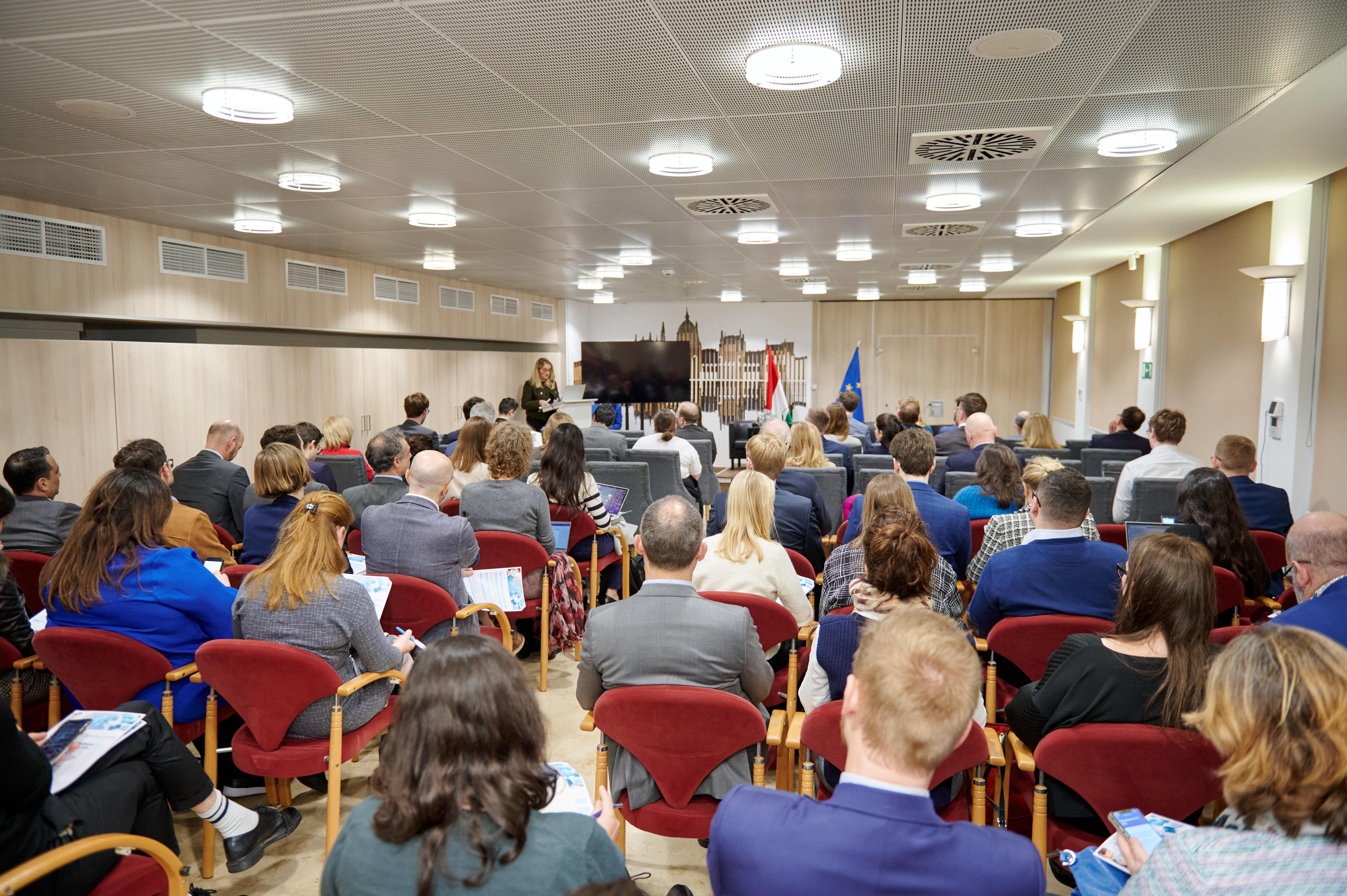
The debate organized in panel discussions focused on the ways to incentivise innovation tackling AMR, to ensure equitable access through the right modulation of regulatory and market incentives and the sustainability aspects.
National health systems in Europe are famous for their inclusivity and that no patient is left behind. This is a fundamental value we have to preserve, said Katalin Molnár deputy permanent representative of Hungary. A good balance needs to be found and we need to identify unmet medical needs and free-up as much resources as possible to extend equitable access to well-functioning therapies. Moreover it is important to recognize the vulnerability of global pharma value chains. Therefore the need for a pharmaceutical regulatory environment that supports European manufacturing and consolidates distribution channels.
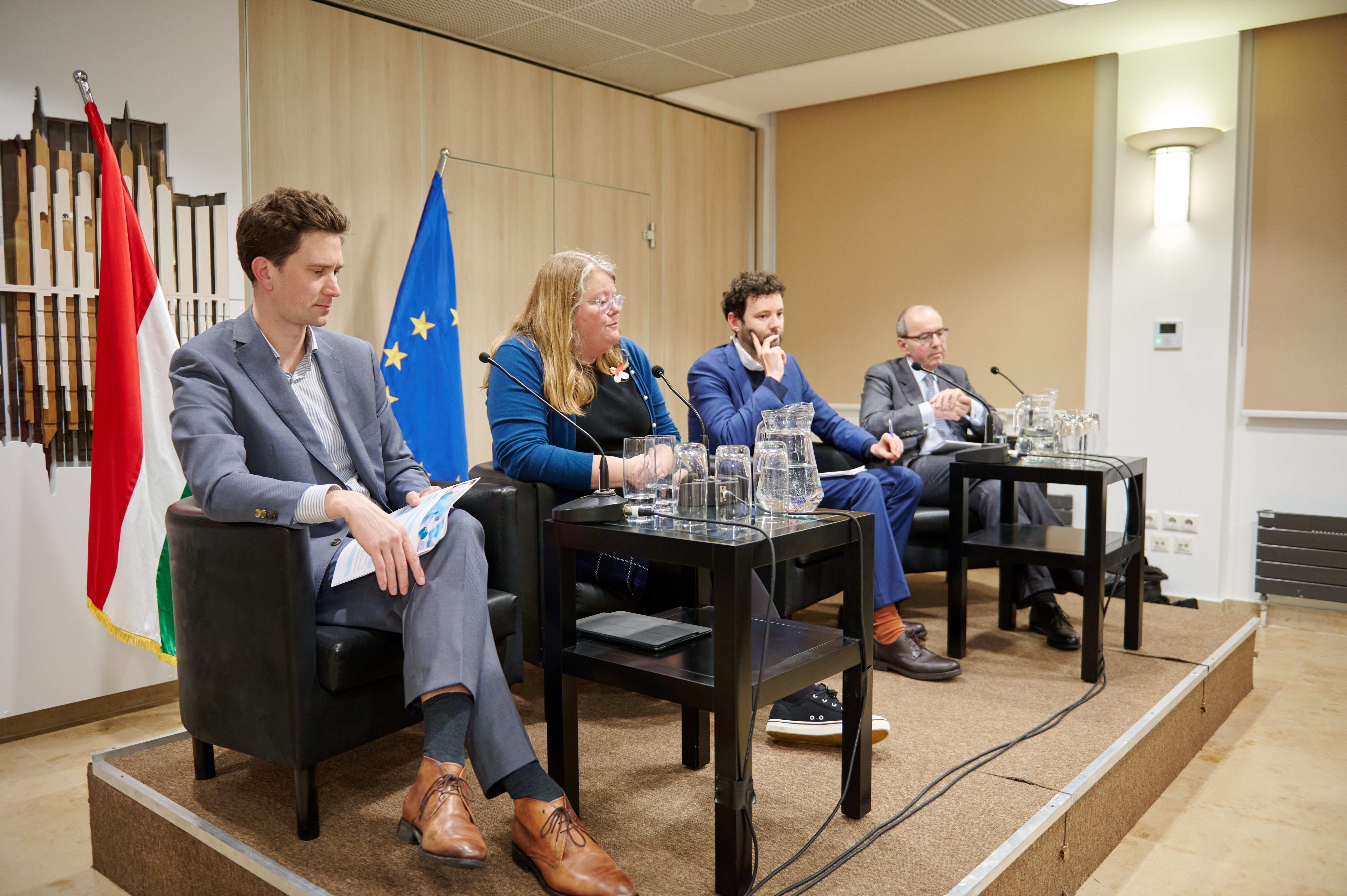
The event was attended by around one hundred participants and among the speakers could we hear from the representatives of the European Commission, the European Parliament, the permanent representations, the national health authorities, the organizations of patients, insurers and pharma industries.
We will not allow students to be the victims of any decision of Brussels
Hungary's position is clear: we will not allow students to be the victims of any decision of Brussels, and the Hungarian budget will pay the costs of the Erasmus scholarship programme if the dispute with the European Commission cannot be settled, Finance Minister Mihály Varga told MTI on Tuesday in Brussels.
In a statement following a meeting of EU finance ministers, the minister said that one of the objectives of the Swedish EU presidency's programme is to strengthen Europe's capacity to act, but that if this is the case, it is necessary to see how the Commission stands on the payment of the recovery funds Hungary is entitled to.
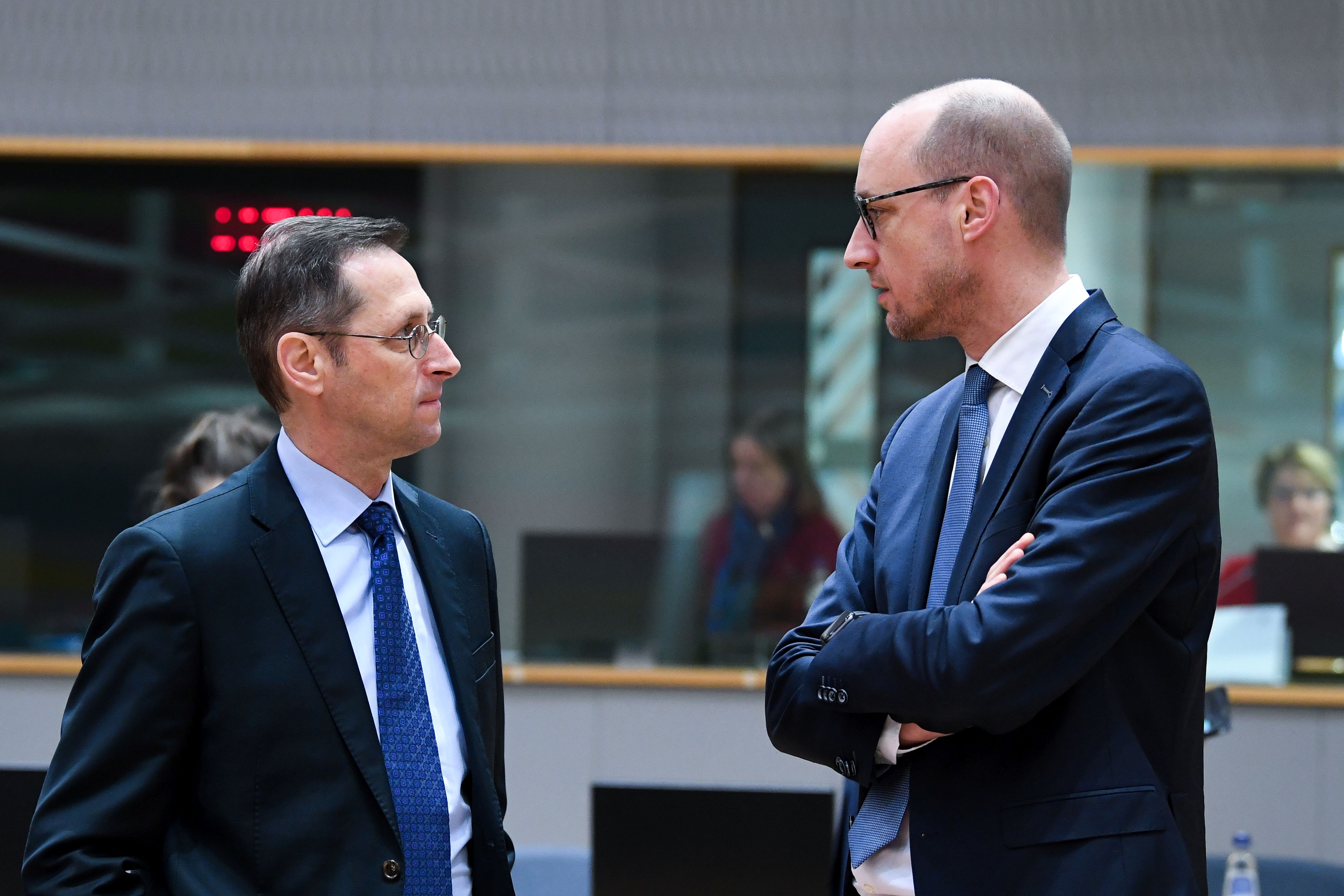
"Hungary has fulfilled all the conditions set by the European Commission, an agreement has been reached with the body and the Hungarian government is doing its utmost to remove obstacles to the disbursement of the funds. We trust that the strengthening of the Commission's ability to act will lead to the fulfilment of the agreement, but the body's behaviour on the Erasmus programme is incomprehensible," he said.
Mihály Varga pointed out that the field of education falls under the competence of Member States, yet the Commission criticises the foundation-based operation of Hungarian universities, which has been a common practice in international higher education for decades.
"We can find examples in America, Germany, Austria, Estonia, France and Belgium, where the current criticism has come from, and in many places politicians who are also members of the European Parliament (EP) play a role in these foundations," he said. He cited the examples of EPP MEPs Angelika Niebler and Andreas Schwaab, who are on the Board of Trustees of the Technical University of Munich and the Advisory Board of the University of Freiburg, and Estonian Socialist MEP Marina Kaljürand, who has been a member of the Board of Trustees of Tallinn University since 2010. "The Commission has so far made no objections to this," he pointed out.
The finance minister also said that they had discussed with their EU counterparts their concerns about the US Inflation Reduction Act. He said that Hungary also believes that the new legislation adopted by the United States, which applies a more favourable tax rate to US electric cars and batteries than to those produced in Europe, is dangerous and harmful to European competitiveness. "Europe has already a significant competitive disadvantage because of the war and the adverse effects of sanctions, and we cannot allow European and Hungarian competitiveness to be further damaged, because this could lead to job losses," the Minister pointed out.
He stressed that the Hungarian government, as in the case of the global minimum tax, will continue to do its utmost to ensure that Hungarian competitiveness is not damaged.
Source: MTI - Hungarian News Agency
Friends of the Protection of Cultural Heritage Network met again
The 3rd meeting of the Friends of the Protection of Cultural Heritage Network was held on 13 January 2023 at our Permanent Representation.
At the meeting, Hungary presented the conclusions of the High Level Round Table Conference of 19 September 2022 and outlined the tasks for the coming period as well as provided information on the future events. In particular, we highlighted the need to improve cooperation and information exchange between EU institutions and Member States, as well as between relevant organisations (agencies, UNESCO, academia (e.g. EUISS)), to put more emphasis on simplifying access to financial resources and to improve coordination between Member States and agencies. This will allow, on the one hand, to avoid overlaps and, on the other hand, implementing more actions and projects by concentrating resources.
The EEAS provided information on the links between cultural diplomacy and the protection of cultural heritage. Based on the experience of the Czech presidency, it was underlined that the protection of cultural heritage is a complex area due to its horizontal nature, therefore it is important to strengthen and expand the functioning of the Network. UNESCO presented its ongoing projects, in particular its ongoing plans in Ukraine. In this context, it was an important finding of the meeting that the EU can for the first time respond to an ongoing conflict from the protection of cultural heritage point of view, which will allow to learn new methodism, lessons and practices. DG Justice and Home Affairs presented the new EU Action Plan to combat illegal trafficking of cultural goods, which will be adopted for the first time. The EUISS (European Union Institute for Security Studies) assessed the protection of cultural heritage from the point of view of academics, an important conclusion being that the work of the Network, which was launched on the initiative of Hungary, is also of great interest to academia.
The Member States participating in the Network meeting (Austria, Italy, Greece, Cyprus, Lithuania, Poland, Slovenia, Czech Republic, Luxembourg) have actively supported its work.
Ukraine's decisions to curb minority rights make it difficult to support the country in the future
According to a statement by the Ministry of Foreign Affairs and Trade, the minister said at a press conference held during the break of the EU Foreign Affairs Council that the main topic of the meeting was the war in Ukraine. "I see that despite the start of a new year, the attitude towards war has not changed and the same warlike atmosphere prevails," he said.
As an example, he cited that EU High Representative for Foreign Affairs and Security Policy Josep Borrell proposed that the bloc should contribute an additional €500 million from the European Peace Facility to finance arms shipments to Ukraine and €45 million to the Ukrainian military training mission.
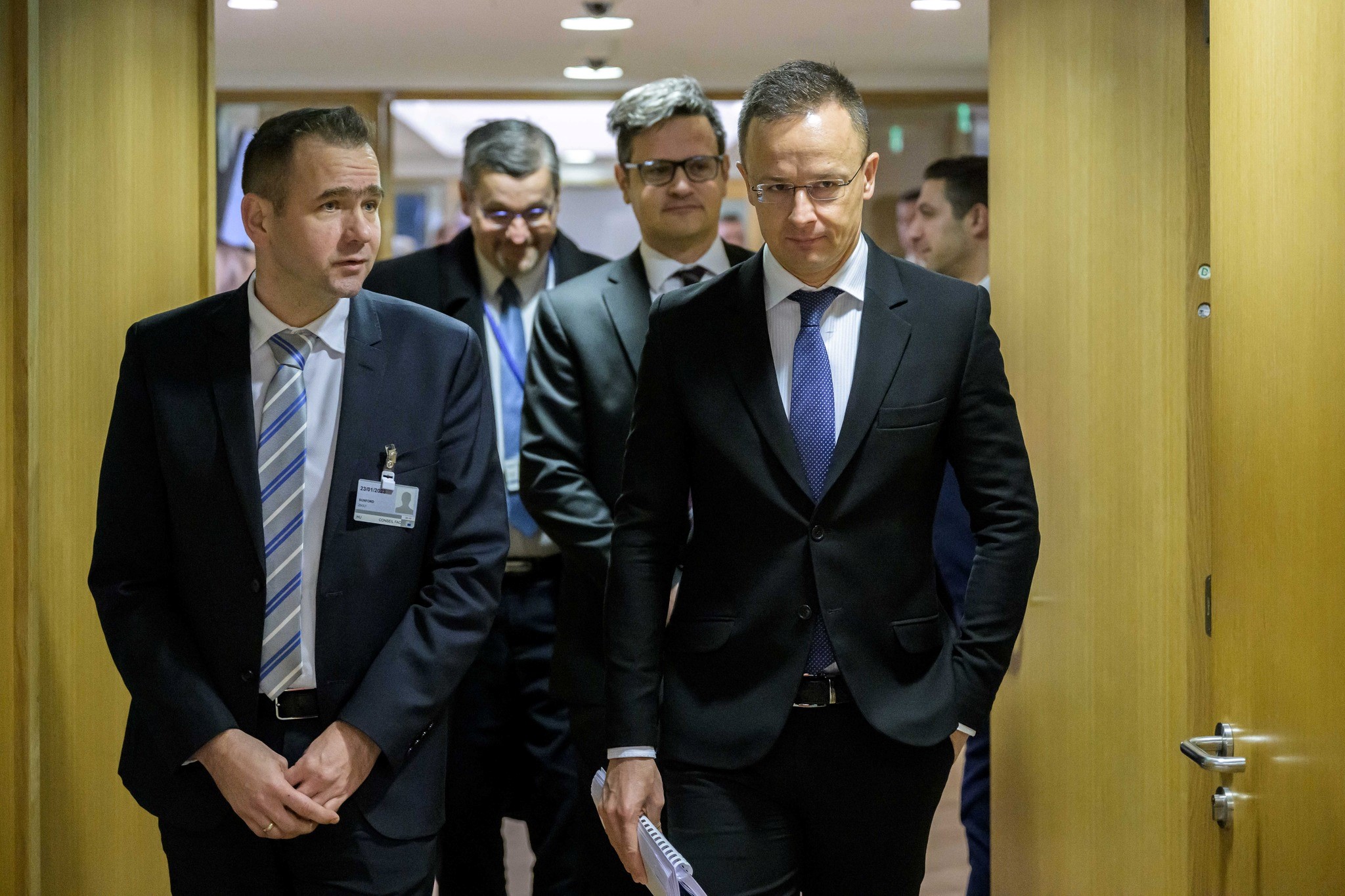
"Our position is clear: we need peace as soon as possible (...) The further one is geographically from Ukraine, the less one may feel the effects of war directly and therefore the commitment to achieve peace as soon as possible may also be weaker" he said.
"Any decision that could lead to a prolongation or potential escalation of the war is contrary to our interests and we do not consider a good idea to increase arms transfers, but we will not prevent the implementation of the European Union's decision in this regard," he said.
Szijjártó then raised the issue of "concentrated and serious attacks" against the Hungarian national community in Ukraine.
He strongly protested against the sudden dismissal of a large number of school principals and teachers of Hungarian nationality without any justification, and the obligation of institutions to remove Hungarian national symbols. "These are all signs of a serious, concentrated anti-Hungarian attack," he warned.
"All this is unacceptable, and not only we Hungarians, but also the European Union, must take action against this. It is unacceptable for anyone to present this as a bilateral issue," he added.
He pointed out: Ukraine, as an EU candidate country, must respect the rules of the community, and guaranteeing the rights of national minorities is a common value and obligation.
The minister stressed that they expected that the negotiations on the candidacy would improve the situation of national communities in Ukraine.
"This would be the logical thing to do, this would be the right and regular thing to do, but this is not what is happening," he said, underlining that the rules adopted in December create an even worse situation, which, combined with serious legal attacks, is a cause for serious concern.
He said that the laws in force in 2015 should be returned to, and called the hampering of Hungarian-language schools unacceptable.
"The concentrated attacks on Hungarians and the anti-Hungarian actions make it very difficult to make decisions in the coming period that require Hungary to make sacrifices in order to support Ukraine," he said.
"Therefore, we expect Ukraine to respect the rights of the Hungarian national community, (...) and we also expect the European Union to act in this matter," he added.
In response to a journalist's question on the matter, Szijjártó stressed that so far the Ukrainians do not seem to be heeding any calls for attention from European states.
"Ukraine will need European political decisions that will not be taken without us, and the more rights they take away from the Hungarian national community, the longer they delay in restoring the rights of the national community that once existed, the more difficult it will be for us at home in Hungary to make decisions that require us to make sacrifices", he said.
Source: MTI - Hungarian News Agency
Brussels does not protect Eastern European producers from Ukrainian grain imports
Brussels will not provide any assistance that would protect Hungarian, Romanian, Polish or Bulgarian producers from the flow of grain imports from Ukraine, as Zsolt Feldman, State Secretary for Agriculture, told MTI in Brussels on Monday.
The state secretary said that at a meeting of EU agriculture ministers on Monday, six Eastern European member states asked the European Commission to take measures to protect Eastern European producers from the increasing flow of Ukrainian grain imports into Europe.
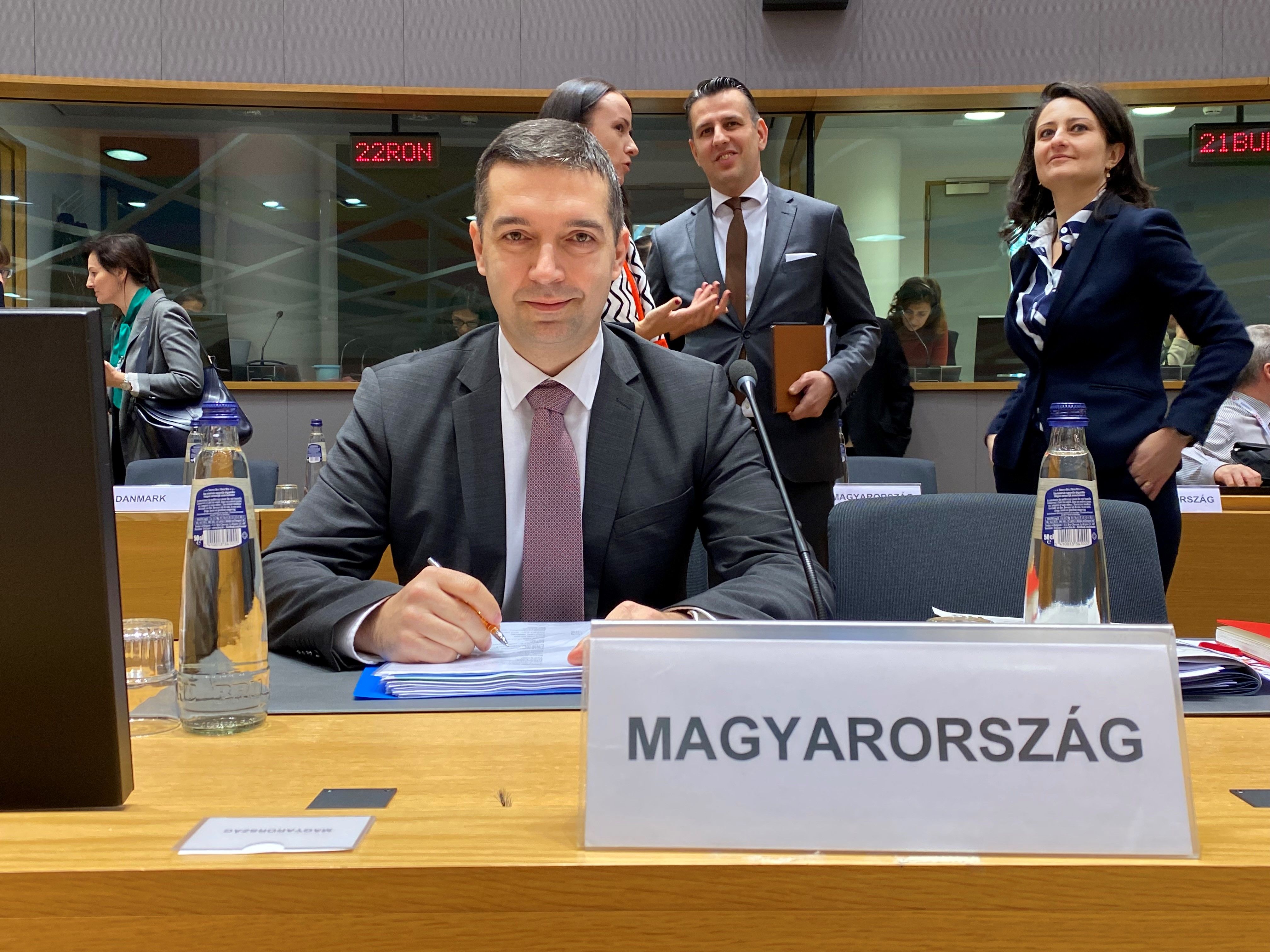
He stressed that Hungary has supported the "liberation" of grain stuck in Ukraine, but that Ukrainian grain is not transported to North Africa or the Middle East, but to a significant extent to Europe and countries neighbouring or bordering Ukraine, in amounts of millions of tonnes.
"This grain is produced with low production costs, using production practices not used in the European Union, and is on average €70 cheaper per tonne than grain produced in Hungary or Eastern Europe," he pointed out. This means that Hungarian producers cannot sell the cereals they produce either on their domestic market or on their traditional export markets. He said that the European Commission had envisaged the creation of a financial fund, which Hungary considers important, but that it could not solve the market crisis.
Mr. Feldman also said that at the Council meeting, together with several member states, they urged the European Commission to put a clear indication of origin on the packaging of honey products. He drew attention to the fact that honey products from third countries have flooded the market in Europe at extremely low prices, which are essentially squeezing good quality Hungarian honey out of these export markets.
The State Secretary also pointed out that the European Commission is proposing to introduce an environmental regulation and authorisation system for medium-sized livestock farms, which only works for large farms. He pointed out that 16 Member States, including Hungary, had sent a joint letter to the European Commission and the Swedish Presidency of the Council of the EU, calling for the involvement of Member States' agriculture ministers in environmental issues affecting European agriculture.
Source: MTI - Hungarian News Agency
Crisis management was in the focus at the Agriculture and Fisheries Council in January
Ministers of agriculture exchanged views among others on the market situation, the problems with increasing agricultural imports from Ukraine, the agricultural dimension of the industrial emissions rules and the requirements on the origin labelling of honey blends in their meeting held on 30th of January in Brussels.
Regarding the market situation, Ministers still highlighted the challenges of the instable situation, the increased energy and input costs. State Secretary Zsolt Feldman together with other ministers called for the mobilization of the new agriculture reserve. Therefore, agricultural businesses could reduce the impact of the unprecedented increase in energy costs. Mr Feldman specifically drew attention to the difficulties related to the increasing agricultural imports from Ukraine together with five Member States. Recalled, that after the outbreak of the war of aggression, it was a common commitment to ensure global food security and establish alternative logistic routes using all relevant routes and so that Ukrainian grain could be transported by land. To this end, the European Union set up the Solidarity Lanes. To the well functioning of the Solidarity Lanes Hungary is very committed and actively involved. Despite to the aim to ensure grain supply to countries outside Europe, unfortunately a significant part of the incoming crops is sold on the markets of countries bordering with the Ukraine, leading to serious market disruptions. The European Commission has acknowledged the problems and indicated that in the possible activation of the agricultural reserve the situation of these countries will be taken into account.
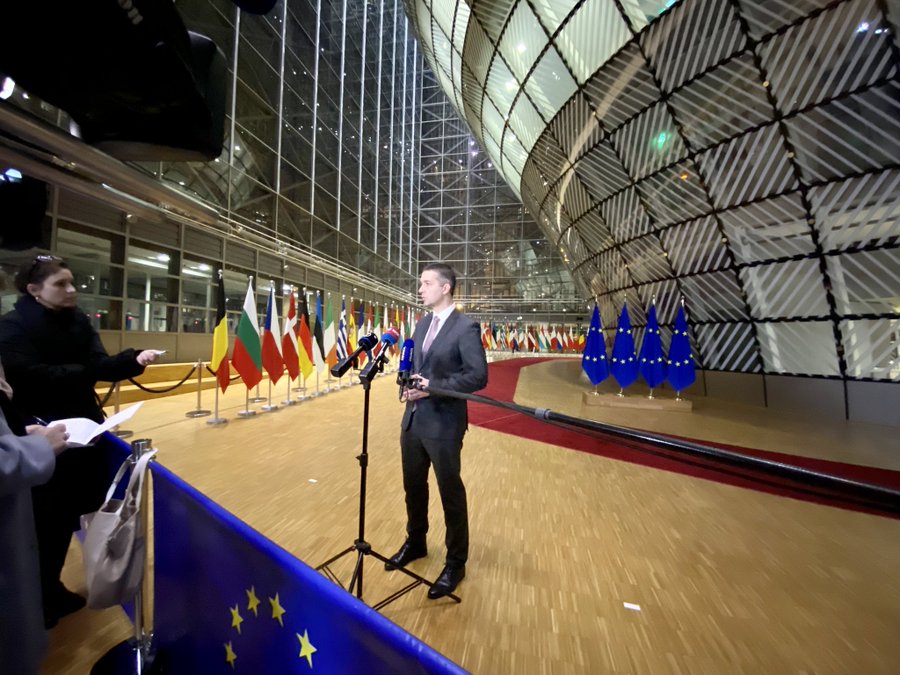
In relation to the agricultural dimension of the industrial emissions rules, Member States emphasized the importance of the right balance between safeguarding the competitiveness of agriculture and the environment aspects. Ministers outlined that Member States’ specificities and different agricultural structures should be taken into account, avoiding disproportionate increase of administrative and financial burden. Majority of Member States did not agree that the rules should cover larger number of livestock producers, primarily referring to food security risks and deteriorating profitability of the struggling agricultural sector.
Ministers of twenty member states asked the European Commission to tighten the requirements on the origin labelling of honey blends. There is a clear demand from producers and consumers for the exact indication of the countries of origin of the honeys that make up the honey blends. If products called honey of dubious origin and quality from third countries displace European honey from the markets, biodiversity will be lost, consumers will lose, and beekeepers who maintain bee colonies will end their activities in the absence of adequate income.
In addition, the majority of agriculture ministers urged the reasonable strengthening of the regulation on the protection of animals during transport.
GAC of February 2023 – the session of the European Council was on the agenda
On 6 February the General Affairs Council met again in Brussels.
The Presidency presented its priorities for the first half of 2023. Ministers exchanged views on the preparation of the special European Council of 9-10 February 2023.
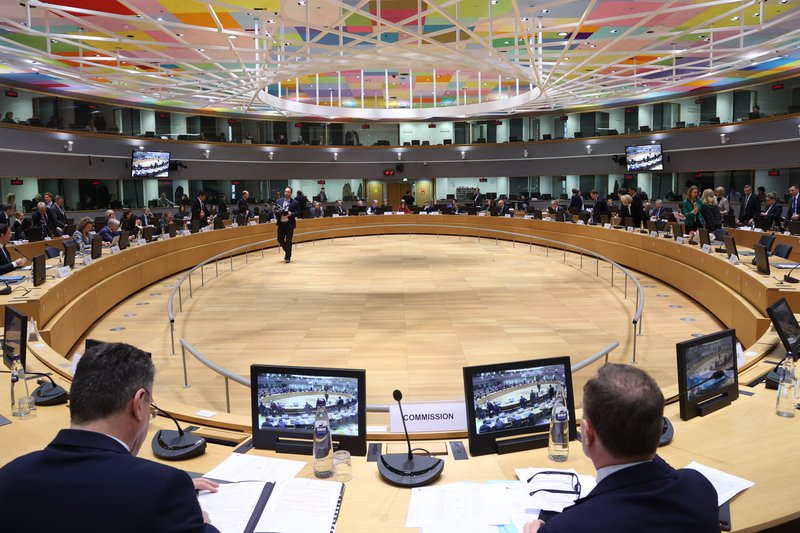
Ministers took note of the Commission’s update on relations with the UK. Hungary was represented by dr. Bálint Ódor, Permanent Representative.
The Hungarian economy remained in a growth phase last year
The Hungarian economy remained in a growth phase last year despite the protracted Russian-Ukrainian war and the sanctions imposed by Brussels, the Hungarian Finance Minister said in Brussels on Tuesday.
Speaking to Hungarian journalists ahead of a meeting of the Council of Finance Ministers (Ecofin) of EU Member States, Mihály Varga stressed that according to the European Commission's Winter Economic Forecast published on Monday, Hungary's economy continued to grow last year, with gross domestic product up 4.6 percent in 2022, according to data released by the Hungarian Central Statistical Office (KSH) on Tuesday.
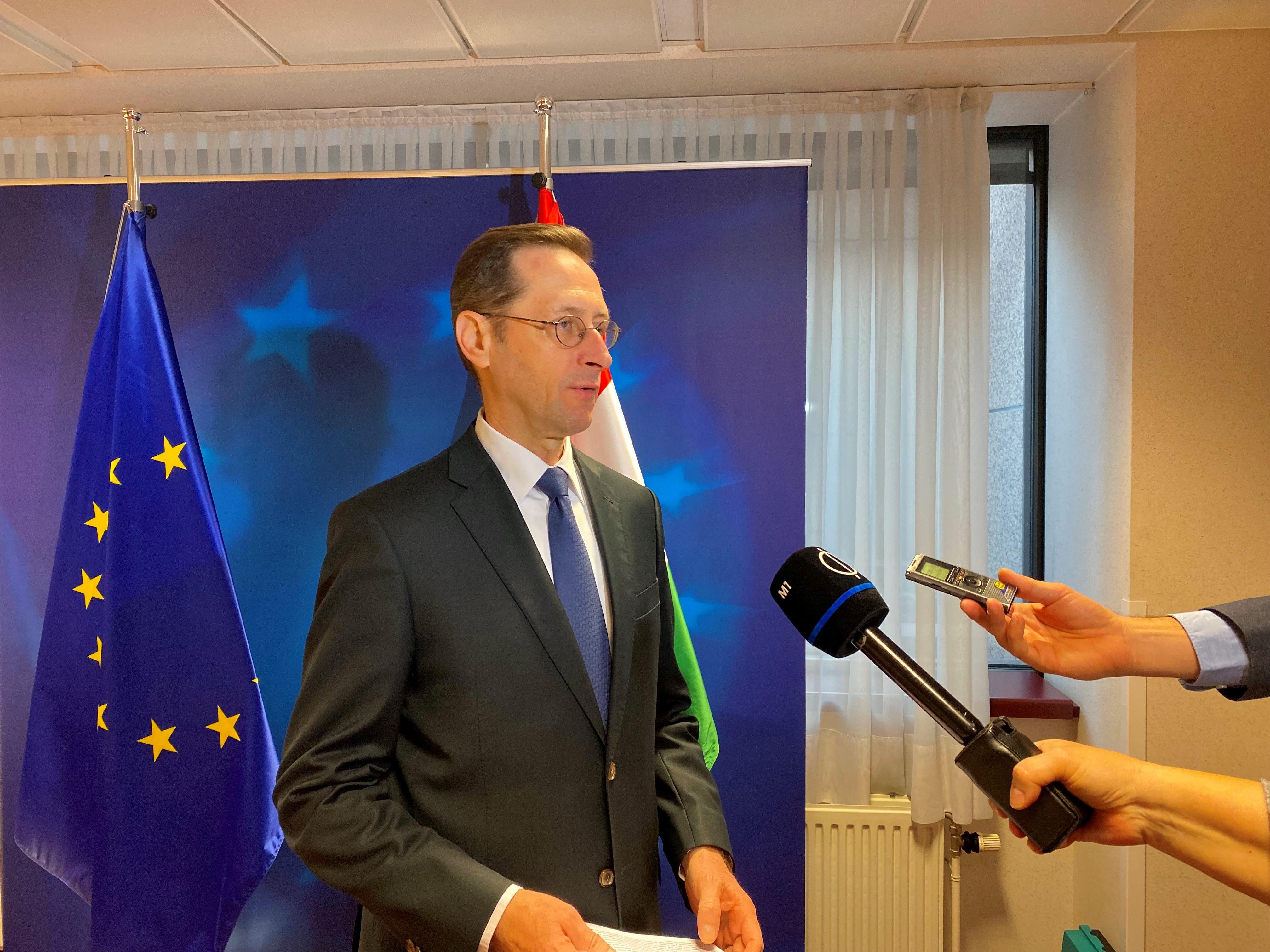
The Hungarian finance minister stressed that, although Hungary's growth momentum declined somewhat in the last quarter of last year, it managed to remain above the European average.
"We can talk of a rapid economic recovery, because, as in the period after the coronavirus pandemic, Hungary managed to grow at a 4.6 percent, despite the war, rising energy prices and Brussels sanctions, stronger than the EU as a whole, which grew at 3.6 percent," he said.
Hungary has improved its economic performance despite still not having access to the recovery funds it is entitled to, he said. The minister added that Hungary is working to avoid a downturn by taking further economic policy steps.
Mihály Varga said that employment remained the stable basis of Hungary's economic performance, with one million new jobs created over the past ten years, the number of employed people exceeding 4.7 million and the unemployment rate among the lowest in Europe at around 4 percent.
The finance minister expressed hope that European competitiveness would be strengthened, as the Hungarian economy would then also have a good chance of achieving the growth range of around 1 to 1.5 percent forecast in the budget.
In a statement sent to MTI, the finance ministry stressed that if Europe does not act, it could fall behind the US and Asia. European companies operating in a world where energy prices have soared will not be able to compete on the world market, it said. The situation is made worse by US economic protection measures that discriminate against electric cars made in Europe.
According to the statement, Mihály Varga stressed that Hungary is not opposed to a temporary and targeted relaxation of state aid rules in Europe. The starting point is equal and predictable access to EU funds for all Member States, he noted.
The finance minister said that it is also necessary to take stock of how effective the instruments used so far have been. In the case of the EU's Recovery and Resilience Facility (RRF), he said, only €144 billion out of a total of more than €670 billion was used between June 2021 and the beginning of February 2023, and 5 Member States did not receive a single euro cent during this period. This is a 21% absorption in 20 months, even though the Recovery Instrument was intended to provide rapid assistance," Mihály Varga pointed out.
Source: MTI - Hungarian News Agency
Foreign Affairs Council focused on Ukraine
The current meeting of the Foreign Affairs Council was held in Brussels on 20 February 2023. Hungary was represented at the meeting by Péter Sztáray, State Secretary for Security Policy and Energy Security.
At the Council meeting, the issues on the agenda were the war in Ukraine, Afghanistan, Iran and climate and energy diplomacy. The Foreign Affairs Council hosted an informal working lunch with Moldovan Foreign Minister Nicu Popescu. During the working lunch, ministers discussed the impact of the aggression against Ukraine on Moldova and the possibilities for EU assistance.
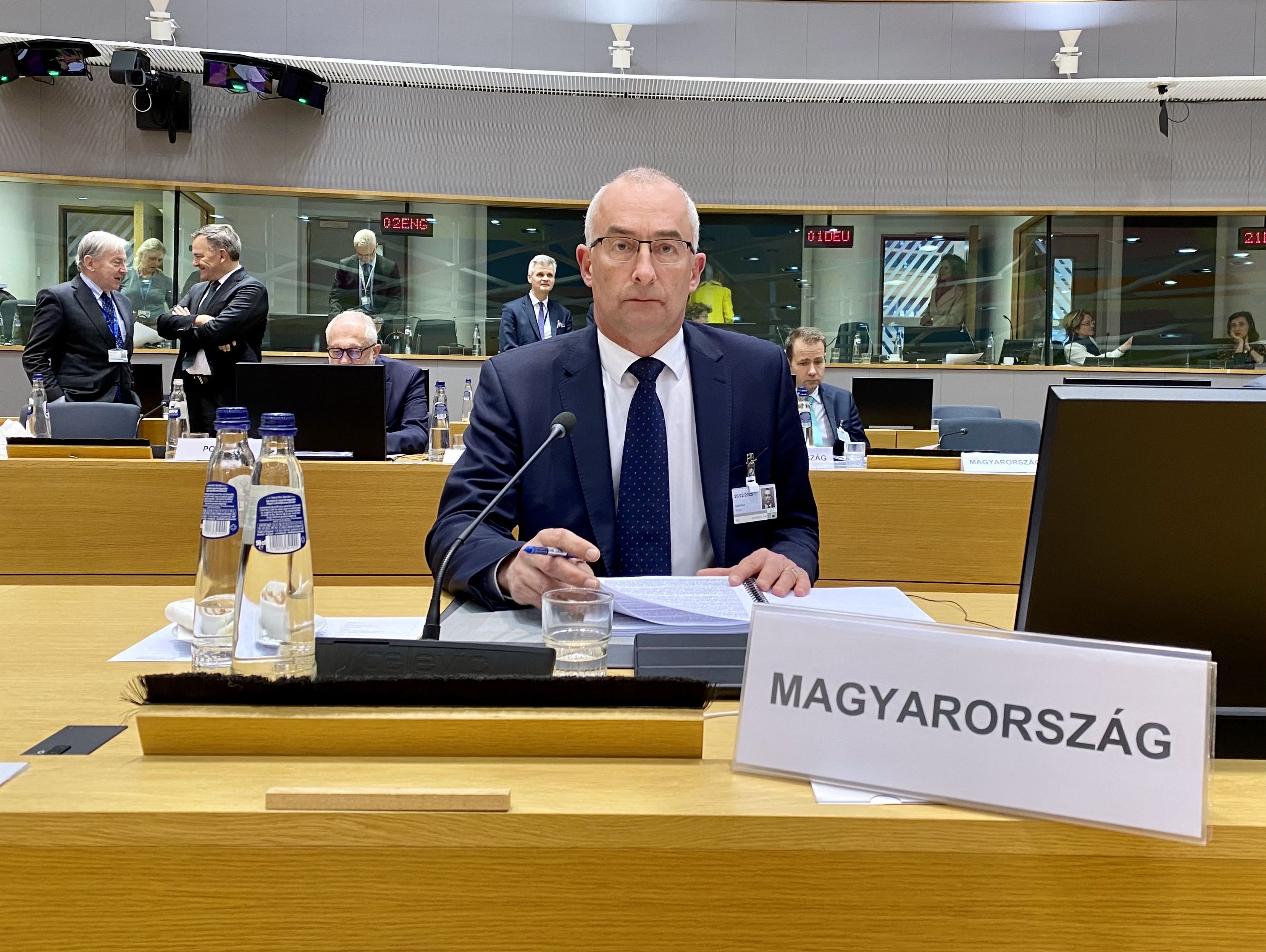
In a discussion on the war in Ukraine, State Secretary Péter Sztáray reiterated the Hungarian position that one year after the outbreak of the war peace talks should be held as soon as possible. Hungary maintains its bilateral support for Ukraine, but stressed that it is essential to properly resolve the situation of the Hungarian minority in Transcarpathia.
Sanctions, the effectiveness of which is still in question, must not be allowed to harm the fundamental national interests of any member state and have a more detrimental effect on the EU and its member states than on the target countries. He also stressed the importance of the energy security of our country, in the light of which we cannot accept measures that would affect the nuclear field.
Summary of the Competitiveness Council meeting on 2 March
At the Competitiveness Council meeting on 2 March (Internal Market and Industry), ministers adopted two legislative proposals, which were supported by State Secretary Gergely Fábián, representing Hungary.
The first, a draft directive on financial services contracts concluded at a distance, updates and modernises the general framework for financial services contracts, including those concluded online. The second proposal, a draft regulation on the collection and sharing of data on short-term accommodation services, provides for measures to simplify and harmonise the provision of data on the operation of online accommodation platforms and to increase transparency in the sector. Regarding the latter, the State Secretary recalled that the current Hungarian system, the National Tourism Data Supply Centre (NTDSC), which has been operational since 2019, already ensures the objective of transparency of the operation of accommodation providers for the supervisory authority. We believe that by this system in place we have already partially achieved the objectives of the proposal.
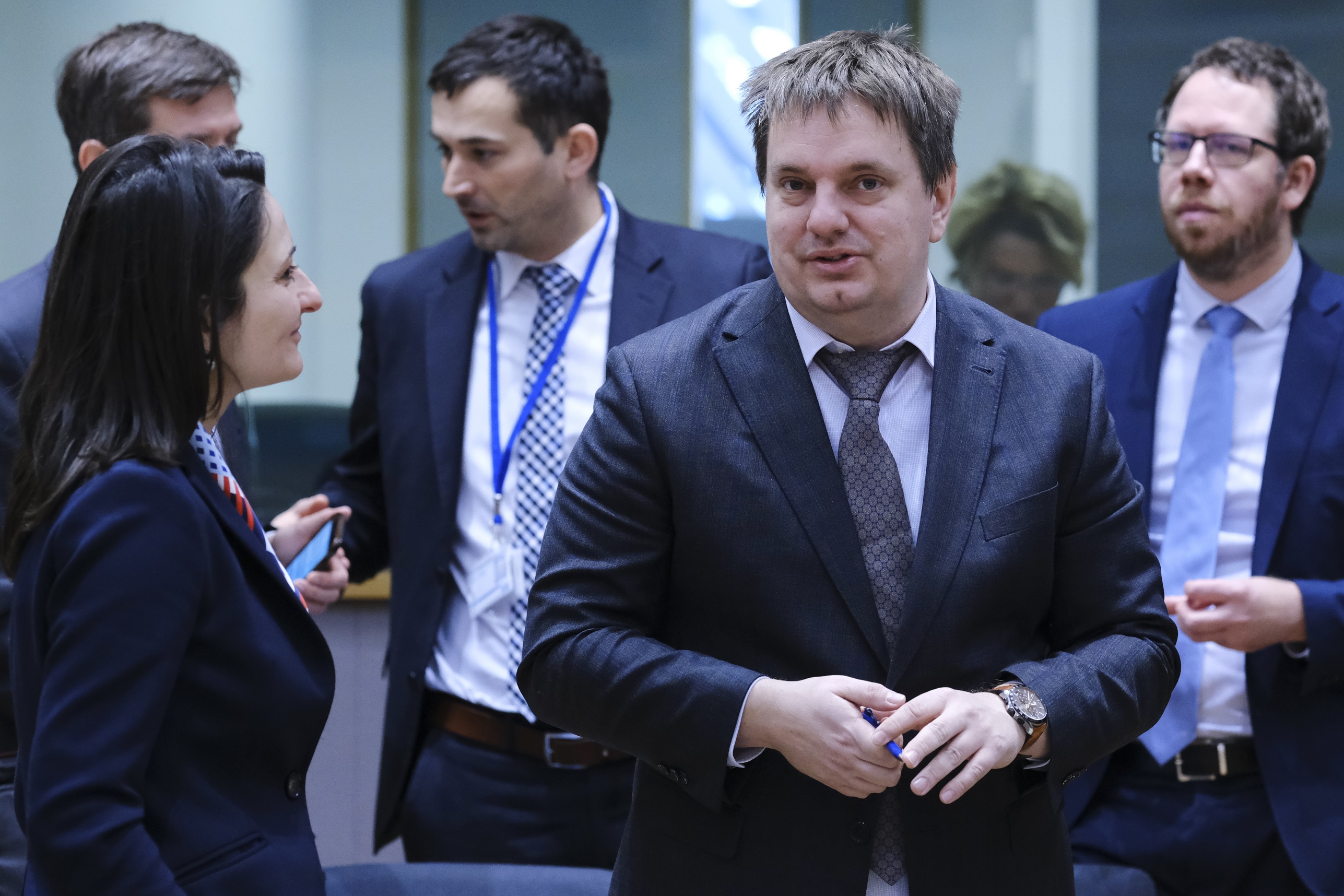
The Council then held a policy debate on Long-term competitiveness and productivity – Single market at 30 and beyond. Ministers sought to identify the key elements and measures the EU could take to improve its competitiveness and productivity in the coming decades. It was agreed that, while there has been significant progress in product market integration, there is still much work to be done in breaking down barriers in the services market. The issue of state intervention, in particular the review of the state aid framework, was raised again in the context of the upcoming Commission proposals for supporting green industries. The majority of Member States stressed the importance of targeted, proportionate and temporary measures in this area and agreed with the Commission that we cannot rely on state aid alone to ensure our long-term competitiveness. On the other hand, the availability of skilled labour is a competitiveness factor that needs to be taken very seriously as well, because the right skills, currently in short supply, are particularly needed to promote green industries. State Secretary Gergely Fábián underlined the importance of taking industry's views into account and listening to their concerns during the policymaking process. Many businesses are struggling to survive, so targeted public support is needed to help them. He also agreed that it would be important for businesses to reduce administrative burdens, simplify the regulatory environment and speed up procedures.
The day before the Council meeting, State Secretary Gergely Fábián attended the 7th High Level Meeting of the European Battery Alliance, convened and chaired by Commission Vice-President Maroš Šefčovič. Participants agreed that the sector has been hit by external shocks over the past year which needs to be addressed quickly, while at the same time developing a comprehensive and ambitious plan to strengthen the EU's long-term competitiveness and productivity. This must include improving the EU regulatory framework, accelerating private investment and financing across the battery value chain, ensuring the availability of skilled labour and, not least, harnessing trade policy and international partnerships.
EYCS Council of 7 March 2023
The EYCS Council took place on 7 March 2023, where the ministers concentrated on some of the most relevant education matters. A thought-provoking policy debate was held on high-quality teachers, while the informal lunch put special focus on experiences and successful initiatives to mobilise displaced teachers from Ukraine to help refugee learners in their integration process. Recognizing the outmost importance of appropriate skills to carry out a successful green transition, ministers approved the Council Conclusions on skills and competences for the green transition.
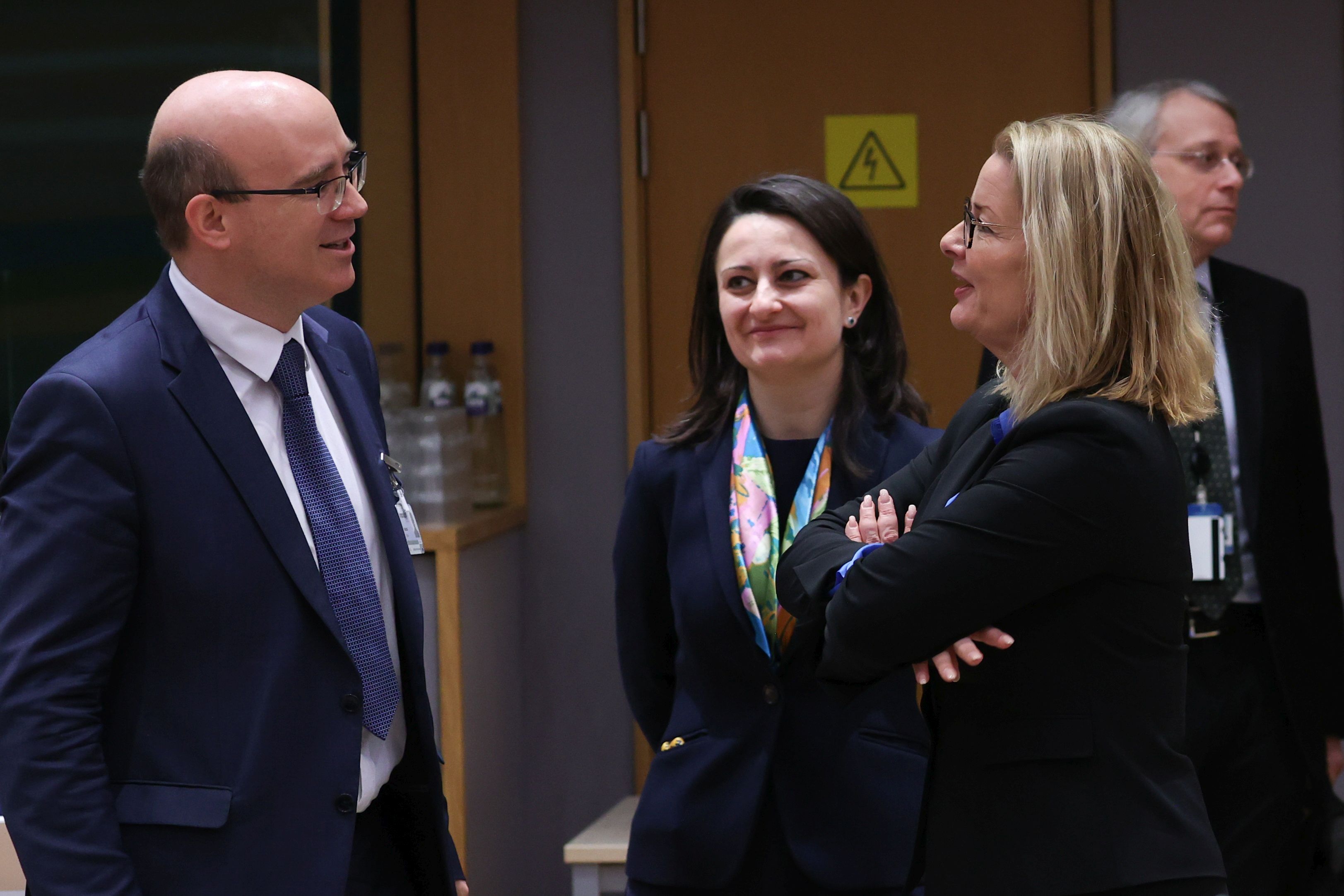
The policy debate on high-quality teachers very much highlighted that the shortage of teachers was a common challenge for Member States. The exchange of views, furthermore, made it possible for the ministers to identify relevant incentives and measures that are likely to contribute to attract, upskill and retain qualified and well-trained teachers.
The situation in Ukraine is not just extremely difficult for those remaining, but also for pupils and students who had to flee their home country. Already one-year into the crisis, the ministers took the opportunity to discuss how the potential of Ukrainian refugee teachers can be the most beneficial to the successful school integration of young Ukrainian citizens.
It is clear that Member States are still facing many challenges related to the green transition. The approval of the Council Conclusions on skills and competences for the green transition confirms the ministers’ intention and determination to investigate relevant policy options which will result in measures providing green capacities to Europe’s future population.
As a new initiative to promote contemporary literature and reading amongst the young, participants have learned more about the Day of European Authors.
Benefitting from the occasion, the representatives of Austria, the Czech Republic, Hungary, the Slovak Republic and Slovenia renewed the Joint Memorandum of Understanding on Central European Cooperation in Education and Training which enhances the collaboration of the Member States concerned in the relevant fields.
We need real and substantial border protection
Real and substantial border protection is needed, Hungary is protecting Europe from enormous migratory pressure by defending the external borders of the EU, said Bence Rétvári, Parliamentary State Secretary of the Ministry of Interior, in Brussels on Thursday, following the meeting of the EU Home Affairs Council.
Speaking to Hungarian journalists, the politician said that today, European migration policy is dominated by smugglers.
He stressed that it is not the EU but the smugglers who decide who becomes a European resident and who does not. Those who are smuggled across borders into the territory of the European Union by traffickers become European residents. The European Union cannot stop smugglers because it does not protect its external borders," he said.
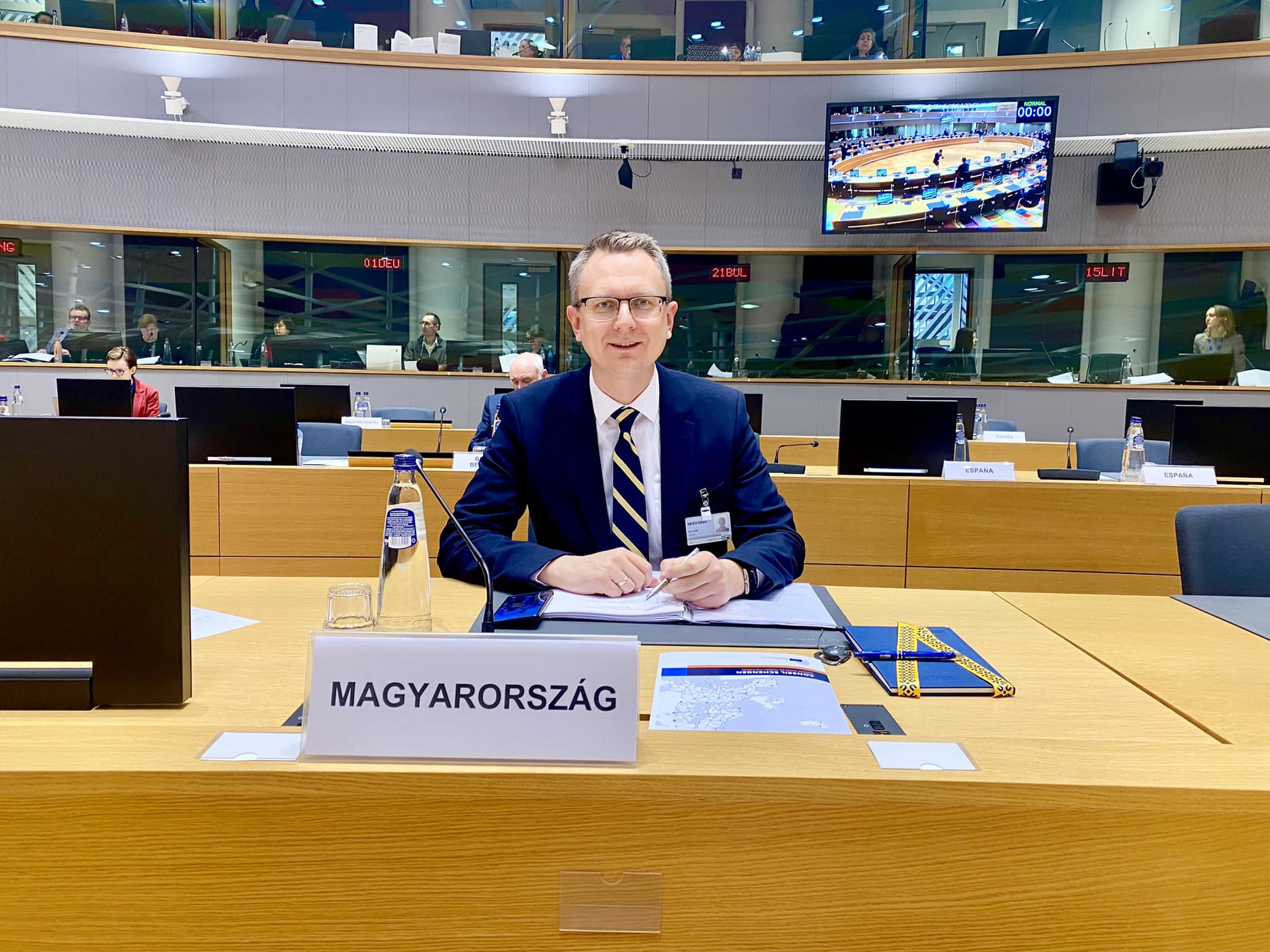
"Hungary's consistent position has not changed: let us stop illegal migration at the external borders and let the EU decide who can be European resident and who cannot," Bence Rétvári said.
Hungary wants the European Union to take the efforts of border protection into account and to contribute to the €1.6 billion, some HUF 650 billion, spent so far on ensuring common security, he said.
He said that above all, the causes of migration must be addressed, not just the consequences. It is necessary to prevent those who do not have the right to stay in the EU from entering in its territory. This is also necessary because the EU has a weak capacity to send back those who do not have the right to stay in the EU," he said.
Concerning the Council's discussion on the war in Ukraine and the related situation in Moldova, Bence Rétvári stressed that for Hungary, peace is the most important. All efforts must be made to prevent the war from escalating and any other country from entering into conflict. It is important to have a ceasefire and then peace in Ukraine as soon as possible, he added.
He also reported that the second generation Schengen Information System (SIS II) became operational two days ago. The use of the system is important not only for border protection but also for the fight against cross-border international crime, as the sharing of biometric identifiers between Member States will make it easier to identify offenders who are registered as unknown offenders in a country, the Parliamentary State Secretary of the Interior Ministry added.
Source: MTI - Hungarian News Agency
Hungary has taken a huge step towards accessing the cohesion funds by undertaking judicial reforms
By undertaking judicial reforms, Hungary has taken a huge step towards ensuring that the Hungarian people get access to the majority of cohesion funds as soon as possible, Justice Minister Judit Varga said in Brussels on Friday.
The politician was speaking to MTI after a meeting of EU justice and home affairs ministers. She said that the dialogue between the European Commission and Hungary on the judicial package focuses on a very narrow range of political issues, and that the negotiations are practically in their "final stage." The minister said that intensive and constructive talks had been taking place between the Hungarian government and the European Commission since last July in order to ensure that the Hungarian people receive the EU funds which they are entitled to. "I could describe these negotiations with a sports example: we have entered a 100-metre flat race, but every day it turns out that we have to run a 110-metre hurdles. Hungary has a sporting history, so we can easily adapt to this, and of course, in order to give Hungarians access to the EU funds that are rightfully theirs, the Hungarian government is running the 110-metre hurdles every day.
She said that the judicial package was a central element of the December agreement with the EU, and the Hungarian government has made it a priority. "The Hungarian government has always delivered on all its commitments. We have done the same with the judicial package, which will soon be submitted to Parliament, and we have held all social and professional consultations and debates, including with special stakeholders at the request of the Commission. In practice, we have taken into account the views of both the professional and civil society when drafting the package," she stressed.
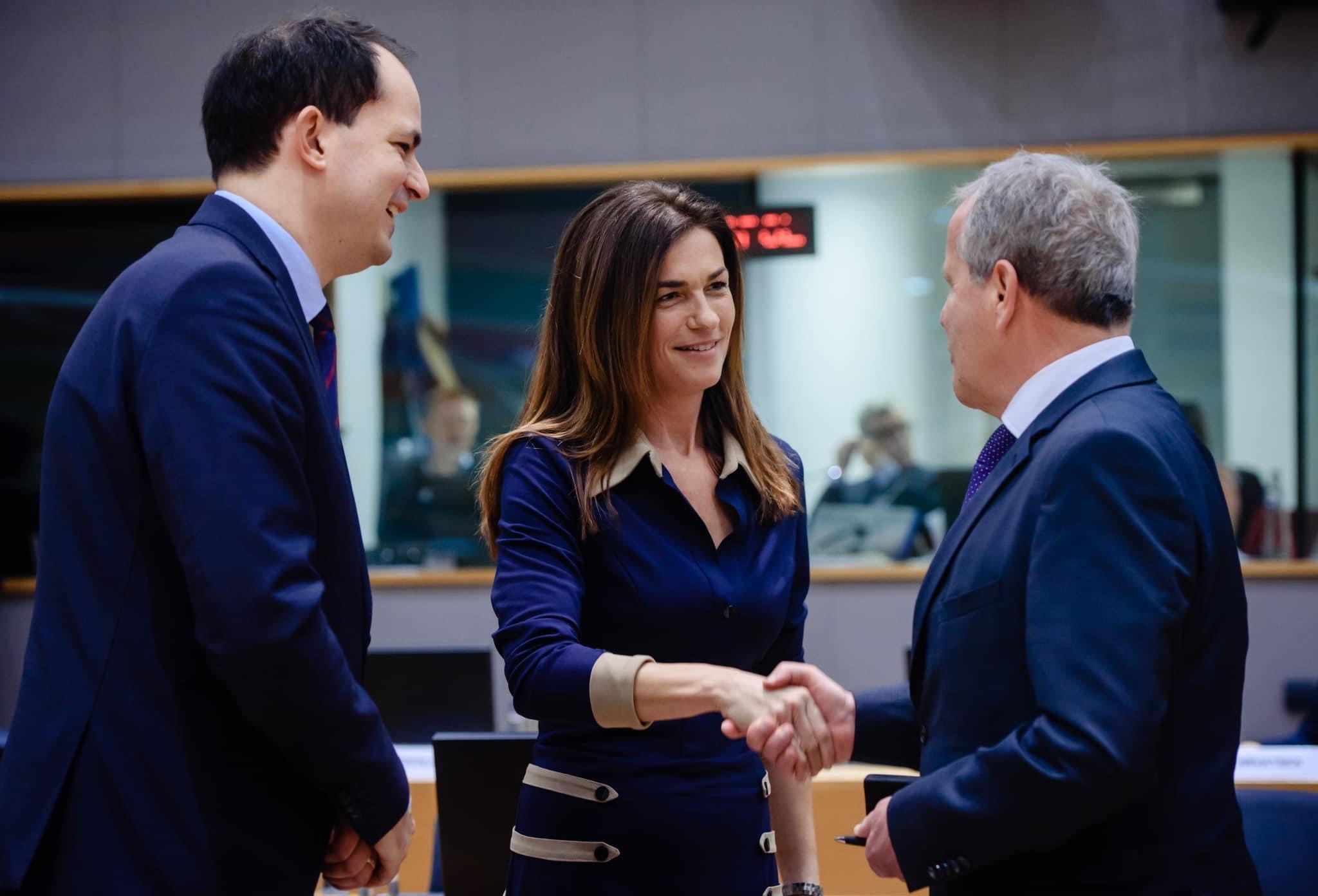
She also said that on Friday she had held a meeting with EU Justice Commissioner Didier Reynders, with whom it was agreed that the package would be finalised soon, with the Commission's staff now only carrying out a technical and professional analysis of the judicial package. On the infringement procedures over the Child Protection Act, the minister of justice said that "in our counterclaim against the EU court's judgment, we argue that the Charter of Fundamental Rights of the European Union states that the determination of the upbringing of children in accordance with national law must be the exclusive right of the parent, who may otherwise determine the upbringing of his or her child on the basis of his or her own educational, religious or other philosophical convictions," she pointed out. In her view, the Commission's action is ideologically driven and clearly the product of an opposition lobby. "However, the Hungarian government will use its legal instruments to the fullest extent to defend the position of the Hungarian people and the will expressed by nearly 3.7 million people in the referendum," said Justice Minister Judit Varga.
Judit Varga stressed that "from the very beginning, the dollar left has done everything possible to put as many obstacles as possible in the way of negotiations to prevent the Hungarian people from accessing the funds in question." In her opinion, "the dollar left is serving foreign interests, not the interests of the Hungarian people, and the liberal media, influenced by foreign-funded NGOs, is also constantly trying to spread scare stories as if the negotiations are stalled or have been derailed." "This is not the case at all," she stressed.
Source: MTI - Hungarian News Agency
First employment and social EPSCO Council under the 2023 Swedish Presidency
The first employment and social EPSCO Council under the 2023 Swedish Presidency took place in Brussels on 13 March.
The ministers exchanged views about the role and purpose of the European Semester and the competitiveness of the Union in light of the green and digital transitions. The Council adopted the 2023 Joint Employment Report and approved council conclusions on the 2023 Annual Sustainable Growth Survey and Joint Employment Report. There was another exchange of views employment and social situation in the EU, with a focus on the labour market situation of temporarily displaced persons from Ukraine. In the presence of the Ukrainian Minister of Social Policy Mr Lodewijk Asscher, Special Advisor of Commissioner Schmit on Ukraine also shared his findings on this subject. The Council debated the way forward regarding the Commission’s proposal for council decision authorising Member States to ratify, in the interest of the European Union, the Violence and Harassment Convention, 2019 (No. 190) of the International Labour Organisation. Hungary was represented by Mr. Sándor Czomba, Secretary of State responsible for employment policy, who presented Hungary’s achievements in terms of employment and our efforts to help temporarily displaced persons from Ukraine.
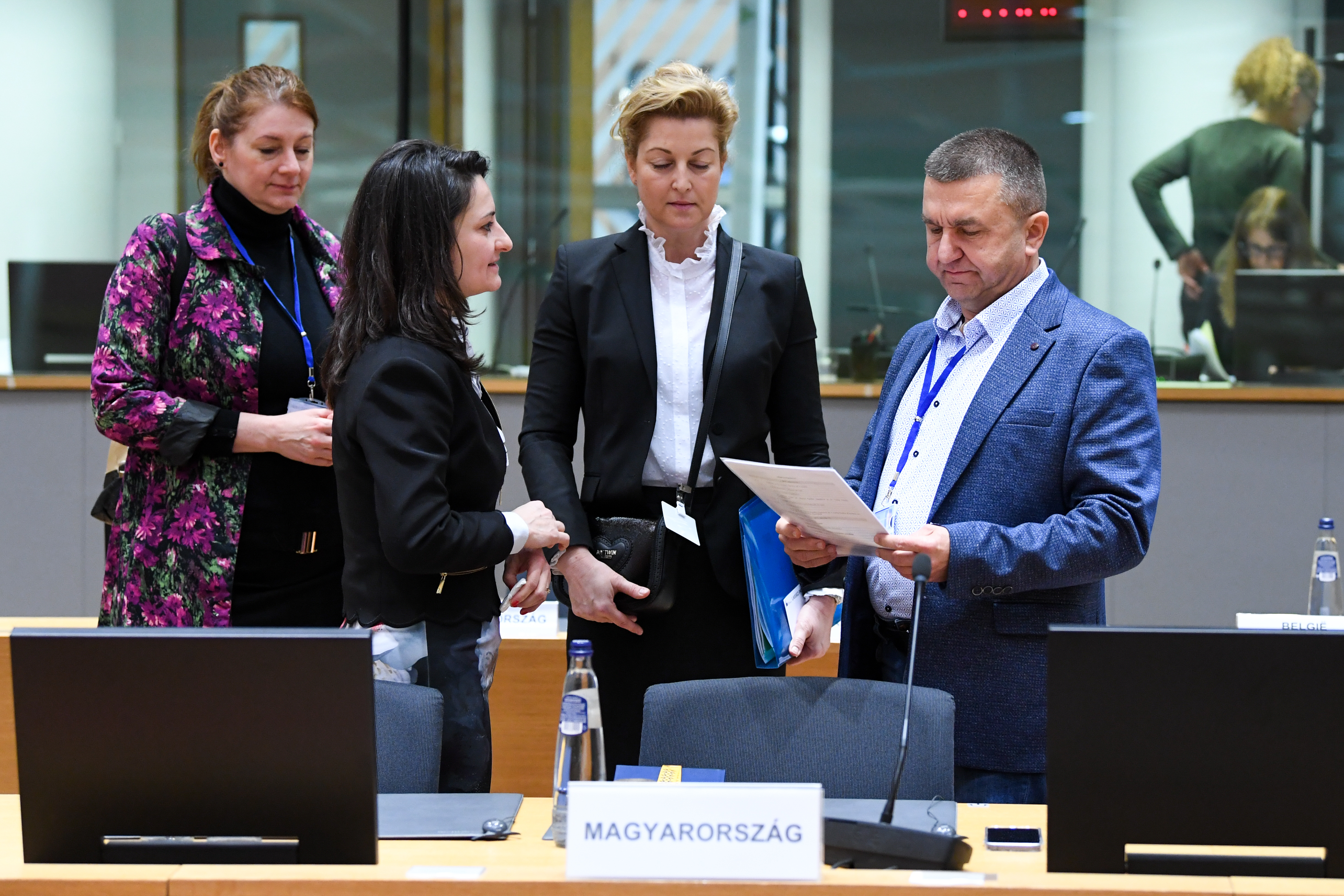
During the exchange of views about the European Semester the ministers shared their experiences and best practices about the green and digital transitions and its effects to the labour markets and to the competitiveness of the Member States and the Union. A number of speakers described the national efforts for the re- and upskilling of workers in order to help them acquire the necessary skills that are needed for a rapidly changing labout market.
Sadly marking the one year anniversary of the war in Ukraine, the Council – in the presence of Ms Zholnovych, Minister of Social Policy of Ukraine and Ms. Hanna Prorok, Deputy Minister for European Integration in Ukraine – analysed the employment and social situation in the EU, with a focus on the labour market situation of temporarily displaced persons from Ukraine. Mr Lodewijk Asscher, Special Advisor of Commissioner Schmit on Ukraine shared his findings.
The Commission provided information about the planned activities and work with stakeholders in the context of the Decision on a European Year of Skills 2023; also about its recently published initiative for a directive amending Directives 98/24/EC and 2004/37/EC as regards the limit values for lead and its inorganic compounds and diisocyanates; similarly, on the Report from the Commission to the Council on the implementation of the Council Recommendation on access to social protection for workers and the self-employed. The Commission and the Presidency jointly informed the ministers about the planned Tripartite Social Summit in Brussels, 22 March and the Portuguese minister on their initiative for the Porto Social Forum to be held in Porto, on 25-27 May 2023.
The allocation of recovery funds is slow and cumbersome
The European Commission has approved an unjustifiably optimistic assessment of the functioning of the Recovery Fund, while the disbursement of these funds is extremely cumbersome and slow, Finance Minister Mihály Varga pointed out in a statement to MTI in Brussels on Tuesday.
Arriving at a meeting of the EU’s finance and economy ministers, Varga Mihály said: Hungary has a number of problems with the functioning of the Recovery and Resilience Instrument (RRF): while a third of the available time has already passed, only a fifth of the funds have been allocated. The minister pointed out that five Member States, including Hungary, have not received any of the funds so far. The minister stressed that by withholding the funds, the European Commission had damaged Hungary's competitiveness and interfered in the economic competition among Member States. Hungary achieved economic growth of 4.6% last year, well above the EU average. If it had received the recovery funds it was entitled to, the Hungarian economy would have grown by more than 5 percent, the finance minister stressed.
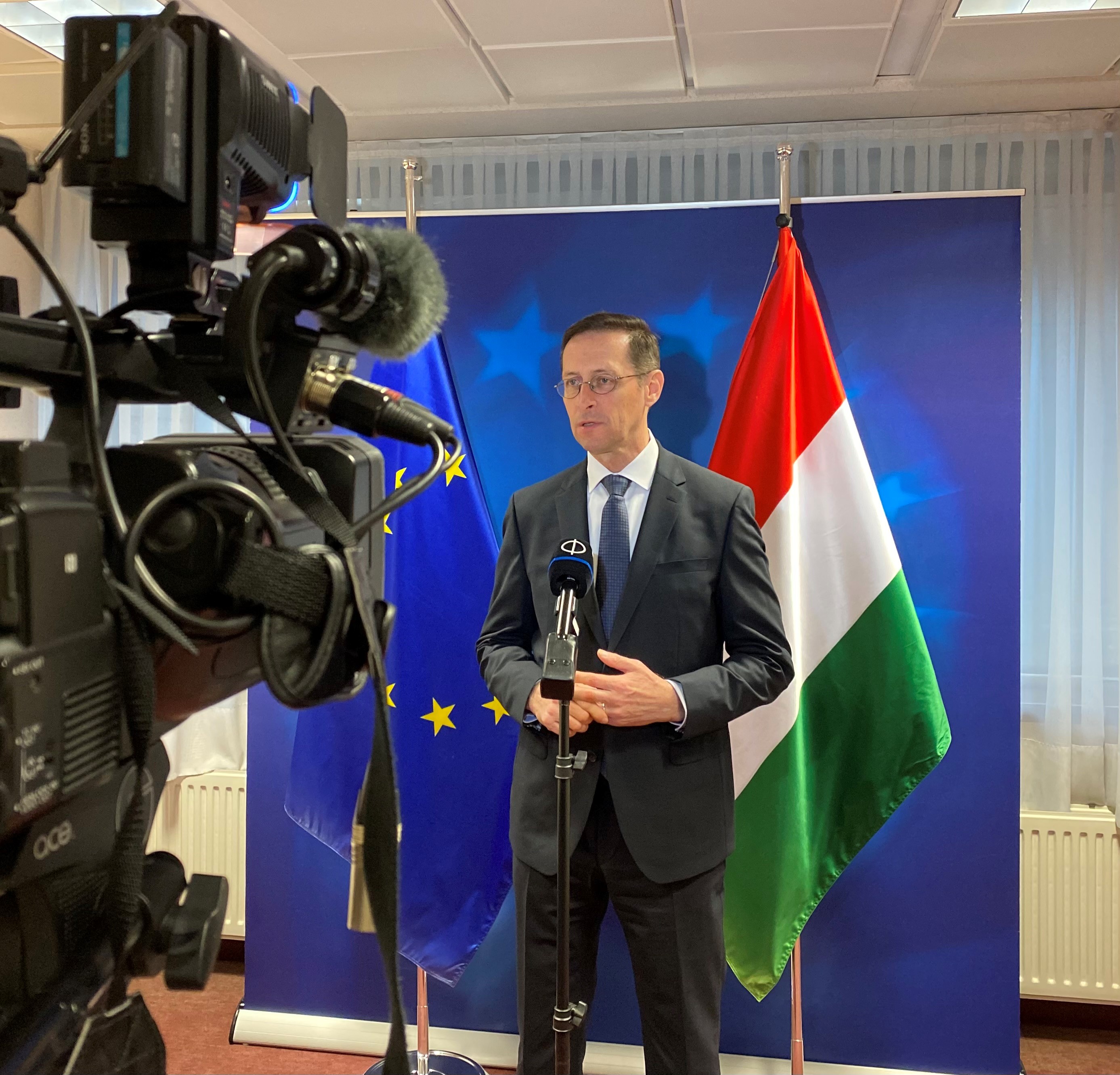
Mihály Varga also said that the procedure for assessing payment applications is extremely cumbersome and bureaucratic. Based on the applications submitted so far, Member States have made only marginal use of RRF loans. This clearly shows that Member States are distrustful of the Brussels solutions, he said.
The finance minister said that, in addition to these criticisms, it is rarely mentioned that the joint borrowing, with the large volume of Commission bond issuance behind it, could have drawbacks such as the possible exhaustion of credit markets. This could mean that individual Member States would get less access to resources on their own, he said.
To sum up, Mihály Varga underlined that these are the general reasons why the Hungarian government considers the RRF a single use instrument and strongly opposes to the creation of further instruments involving joint EU loans.
Regarding the collapse of the US Silicon Valley Bank, the minister said that in Hungary banks have good capital adequacy ratios. All of the last three ratings show that the Hungarian banking system is strong and viable. "We can face the current situation calmly, the exposure is remote, possibly only some US and European banks may have been affected," the finance minister stressed.
Source: MTI - Hungarian News Agency
Medicines shortages and global health on the agenda of the Health EPSCO Council
The EPSCO Council of health ministers took place on 14 March 2023 in Brussels. On behalf of Hungary, Péter Takács secretary of state of health attended the meeting.
At the Council meeting, ministers exchanged views on the recent shortage of medicines across Europe, which has global causes. State Secretary Péter Takács shared the view that enhanced cooperation is needed to avoid similar situations in the future. If the EU faces a global shortage of essential medicines, we need to be able to coordinate with manufacturers, marketing authorisation holders and other stakeholders in a timely manner. To underpin such consultations, we need to be able to collect data, for example on the origin of the active substance used in the EU, manufacturing capacity in the EU and other key information, so that we can clearly identify what can be done at EU level when it comes to interactions with global players.
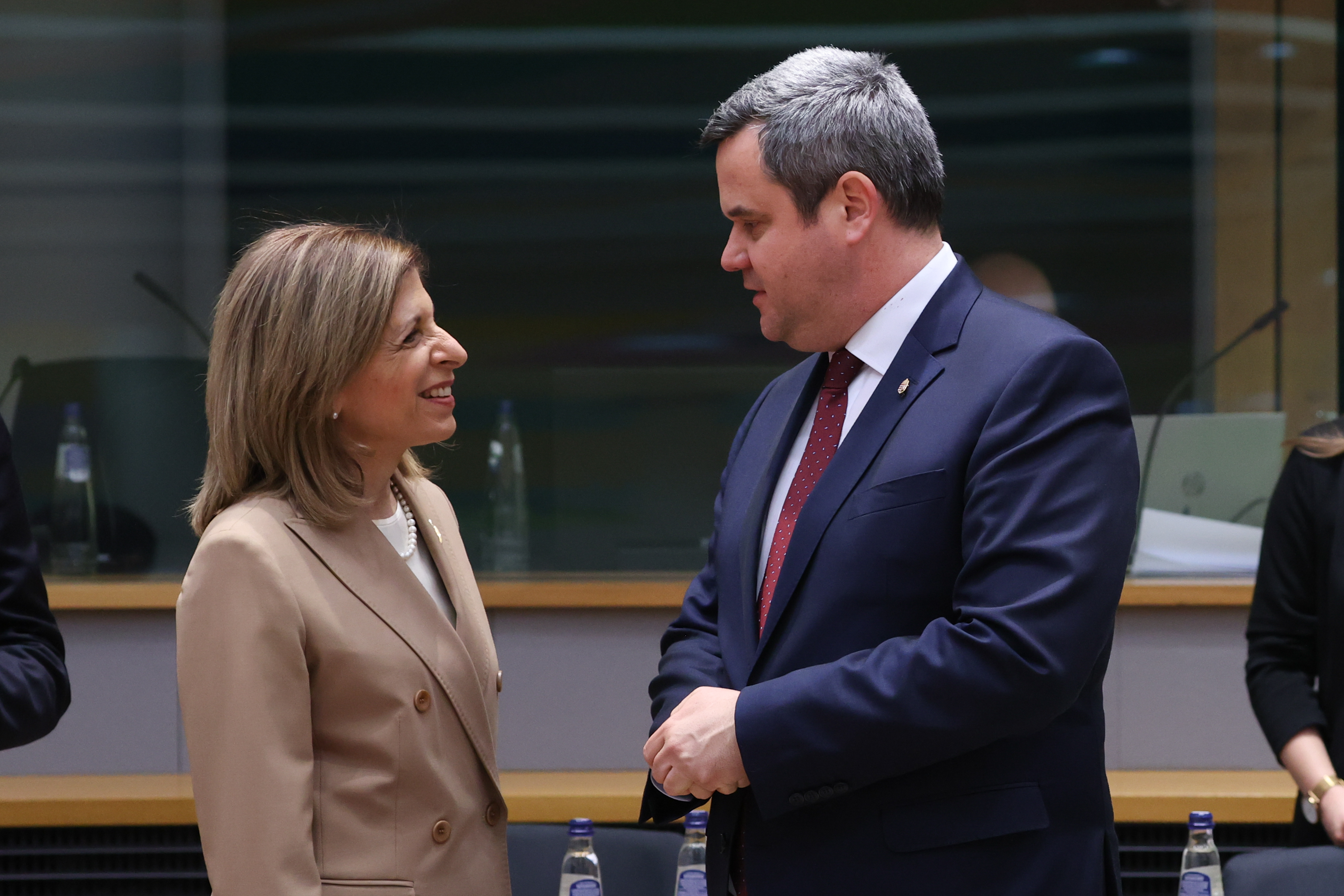
At the meeting, Member States were also briefed on the EU's global health strategy, as drafted by the European Commission. In his contribution, State Secretary Péter Takács said that the strategy should be in line with EU policy objectives such as the fight against chronic diseases such as cancer, digitalisation and the fight against cross-border health threats.
Regarding the joint procurement of Covid vaccines, state secretary Takács underlined that the current epidemic, economic and geopolitical situation does not allow Member States to purchase vaccines that they do not need. We expect further negotiations and we count on the support from the Commission.
In addition to the above, the EPSCO Council's health agenda also included a draft regulation on fees payable to the European Medicines Agency, the implementation of the medical devices regulation, the establishment of an international pandemic agreement and cooperation on the long-term health effects of Covid.
At the Environment Council on 16 March, 2023 in Brussels ministers agreed on the Council’s position on the industrial emission directive.
The Hungarian delegation was led by Dr Anikó Raisz. At the meeting the ministers adopted general approach on industrial emissions directive.
The current text is generally effective in preventing and controlling pollution from industrial activities; nonetheless, it is necessary to carry out certain improvement to contribute to the implementation of the Green Deal.
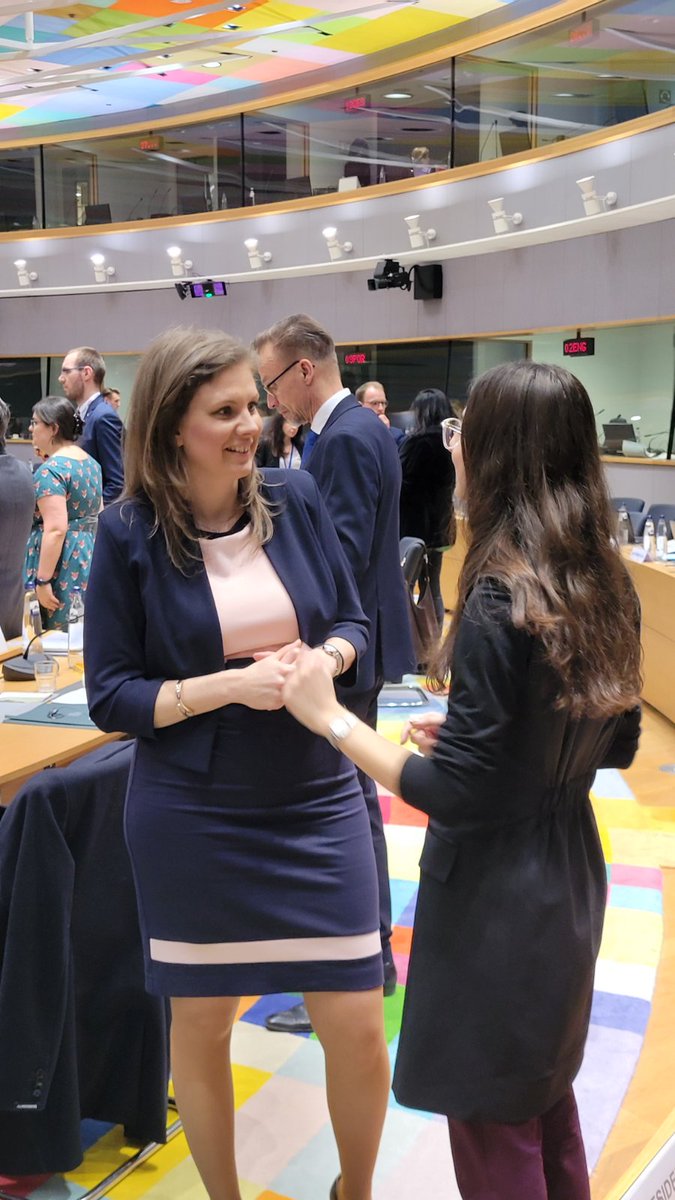
Dr. Anikó Raisz secretary of state recalled that the direction of the Proposal was supported during the negotiation by Hungary; however, the extension of scope to agricultural activity is a great concern. Against this background, considering the dynamic of the negotiation, the latest text may be a subject of compromise.
The ministers had a political debate on the proposed carbon removal certification framework. In general, Member States welcome the proposal which could contribute to the Union’s climate policy efforts. The majority of them, however, believe, that certain elements of the proposal need to be further elaborated, including, among others quality criteria and accounting rules. A number of Member States highlighted the importance of avoiding double counting, and taking into consideration national circumstances. Anikó Raisz secretary of state emphasized the need for minimizing the administrative burden, avoiding double counting and the creation of transparent rules. On the other hand, she suggested that Hungary would be in favour of setting up a central Union registry.
On the main issues of the proposed Urban Waste Water Treatment Directive, ministers, while welcoming the proposal, generally considered its level of ambition to be too high. In particular, they are concerned about the extension of the scope to small agglomerations, the tightening of the requirements for tertiary treatment and the introduction of a new treatment level for micro-pollutants. Member States consider that the proposal does not allow sufficient time to meet the stricter standards and therefore ask for an extension of the deadlines.
At the ministerial round table on the greening of the European Semester, ministers agreed on the need to green public procurement and to phase out environmentally harmful subsidies.
In the ministerial debate on Packaging and Packaging Waste regulation, the Member States considered it important to keep the national discretion in order to fulfil the environmental objectives effectively.
Within the AOB agenda items Poland presented a report on the impact of the war on the natural environment in Ukraine. The European Commission also presented the proposal on the carbon-dioxide emissions standards for heavy duty vehicles (HDV), and Austria with the support of Hungary requested a more thorough impact assessment on new genomic techniques.
Hungary will not participate in the arms transfers to Ukraine
Hungary will not participate in the supply of ammunition to Ukraine, but at the same time it will not prevent other EU countries from doing so, and therefore the Government will apply the institution of constructive abstention in this matter, Minister of Foreign Affairs and Trade Péter Szijjártó announced in Brussels on Monday.
Speaking at a press conference on the sidelines of a meeting of the EU Foreign Affairs Council, the minister said that two proposals were on the agenda to increase arms transfers. The first is that the European Peace Facility would finance the supply of artillery ammunition to Ukraine from Member States' own stocks to the tune of €1 billion.
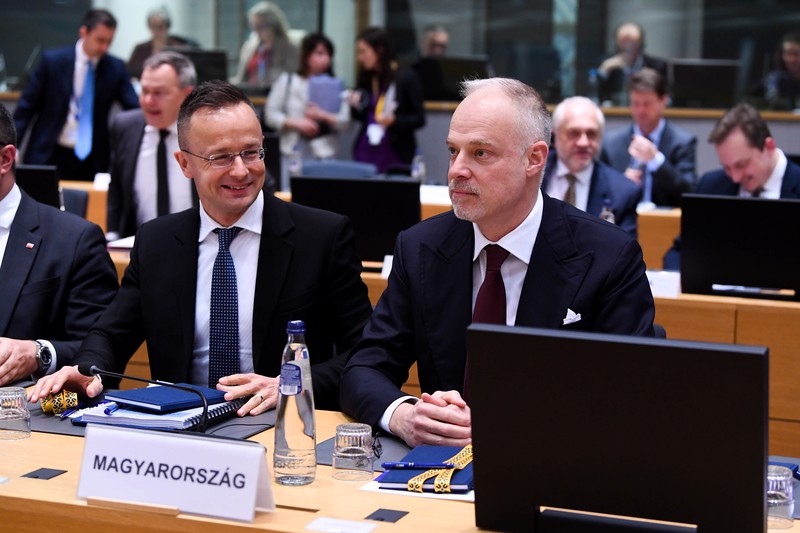
"Hungary is not supplying weapons for this war, and we will not supply weapons, we want peace. That is why we are not taking part in this operation. We are not supplying ammunition to Ukraine. However, we will not prevent others from doing what they want in this regard," he said.
He added that our country's contribution to the European Peace Facility is one per cent - roughly €10 million - which will be used for other purposes at Hungary's request: to strengthen stability in the Western Balkans and to ease migration pressure.
The second proposal is for the EU to transfer to Kiev as much as possible of the ammunition it has jointly purchased, also worth €1 billion.
"Hungary is not involved in this either, we are not buying ammunition to send to Ukraine. Here too, we will use the instrument of constructive abstention, and here too we will ask for the contribution of around ten billion euros to support stability in the Western Balkans and to reduce migration pressure.
"We continue to believe that what is needed is not arms transfers but peace as soon as possible, and for peace to come as soon as possible, we need a ceasefire and peace negotiations," he concluded.
Szijjártó said that there is still a climate of war in Brussels and that pressure is mounting on countries that are speaking out for peace, but the Hungarian government knows that a diplomatic settlement is the only way to save human lives, and therefore it will continue to stand up for national interests and the cause of peace.
"No matter what pressures are put on us in the period ahead, we will continue to stand for peace. We will argue for peace as part of the global majority," he underlined.
As an example of the increasing pressure, he cited the criticism he received today for his position in the UN Security Council.
"It has been said that it is not right for someone from the European choir to sing out in international organisations, which is quite astonishing, because the European Union is made up of sovereign countries. These sovereign countries pursue sovereign foreign policies, and we therefore reject any pressure that seeks to question, restrict or take away the sovereignty of Hungarian foreign policy.
The Minister then also touched on the issue of the disenfranchisement of the Hungarian minority in Ukraine, which he said he had drawn his colleagues' attention to on several occasions, largely in vain.
He stressed that he had asked the EU High Representative for Foreign Affairs and Security Policy, Josep Borrell, to make it clear that respect for national minority rights is one of the most fundamental European values when the EU officially communicates with its Ukrainian partners on integration.
"I asked the High Representative to act to ensure that Ukraine respects the rights of the Hungarian national community," he said.
"It is unacceptable that while more than 1,300 schools and kindergartens in Hungary have already accepted Ukrainian refugee children and students, the 99 Hungarian primary and secondary schools in Transcarpathia are threatened with closure from 1 September under the current Ukrainian legislation," he pointed out.
Finally, he stressed that "I have also made it clear that the Hungarian position with regard to the Ukrainian integration process will be determined mainly by whether Ukraine respects the rights of the Hungarian national community and restores to the Hungarian national community the rights it enjoyed before 2015".
Agrimarkets-trade were in the focus at the Agriculture and Fisheries Council in March
Ministers of agriculture exchanged views among others on the market situation, the problems with increasing agricultural imports from Ukraine, the agricultural sensivity of trade agreements and the afri-forestry aspects of the the nature restoration law in their meeting held on 20th of March in Brussels.
Regarding the market situation, Ministers still highlighted the challenges of the instable situation, the increased energy and input costs. Minister István Nagy specifically drew attention to the difficulties related to the increasing agricultural imports from Ukraine. Recalled, that after the outbreak of the war of aggression, it was a common commitment to ensure global food security and establish alternative logistic routes using all relevant routes and so that Ukrainian grain could be transported by land. To this end, the European Union set up the Solidarity Lanes. To the well-functioning of the Solidarity Lanes Hungary is very committed and actively involved. Despite to the aim to ensure grain supply to countries outside Europe, unfortunately a significant part of the incoming crops is sold on the markets of countries bordering with the Ukraine, leading to serious market disruptions. The Commission has acknowledged the problems and indicated that in the possible activation of the agricultural reserve the situation of these countries will be taken into account. Despite this, the Commission proposed such an endorsement of the activation of the agricultural reserve, which only takes into account the difficulties of three countries - Poland, Bulgaria and Romania. Minister István Nagy stressed the need to review the proposal and asked support for the Hungarian farmers.
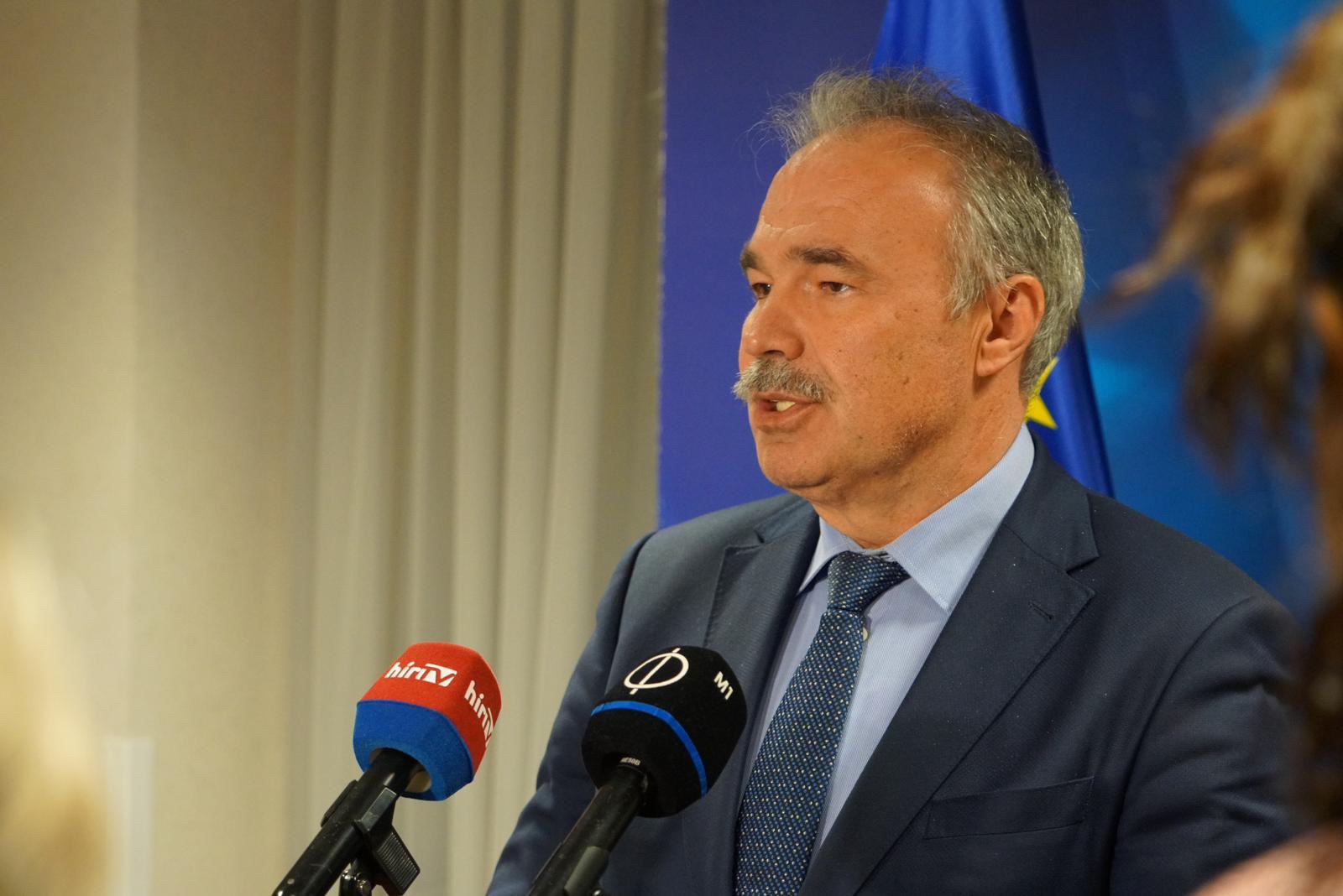
Ministers discussed the agricultural aspects of the nature restoration law. Minister István Nagy stressed that we simply do not have enough land to reach the restoration targets set by the Commission. There are different sectors competing for the same given area, because more food and more renewable energy need to be produced in such a way, which also takes into account the interests of the environment and biodiversity. This can only be achieved by finding the right and reasonable balance between agricultural aspects and environmental considerations.
Further topics were also discussed such as EU-Mercosur Association Agreement and its agricultural implications, the situation of aquaculture and the protection of pollinators.
